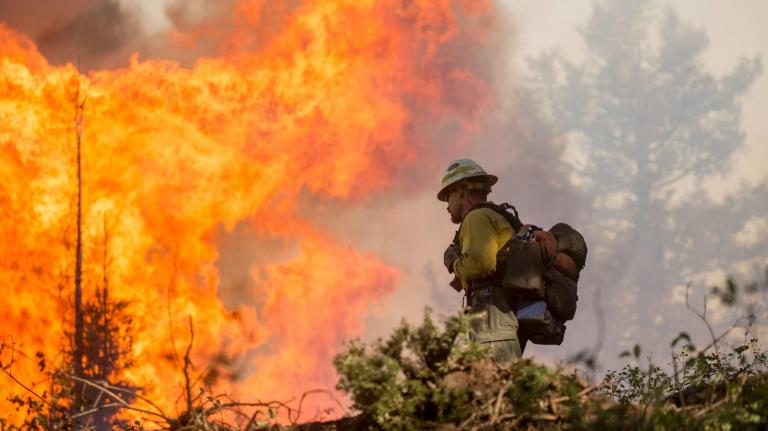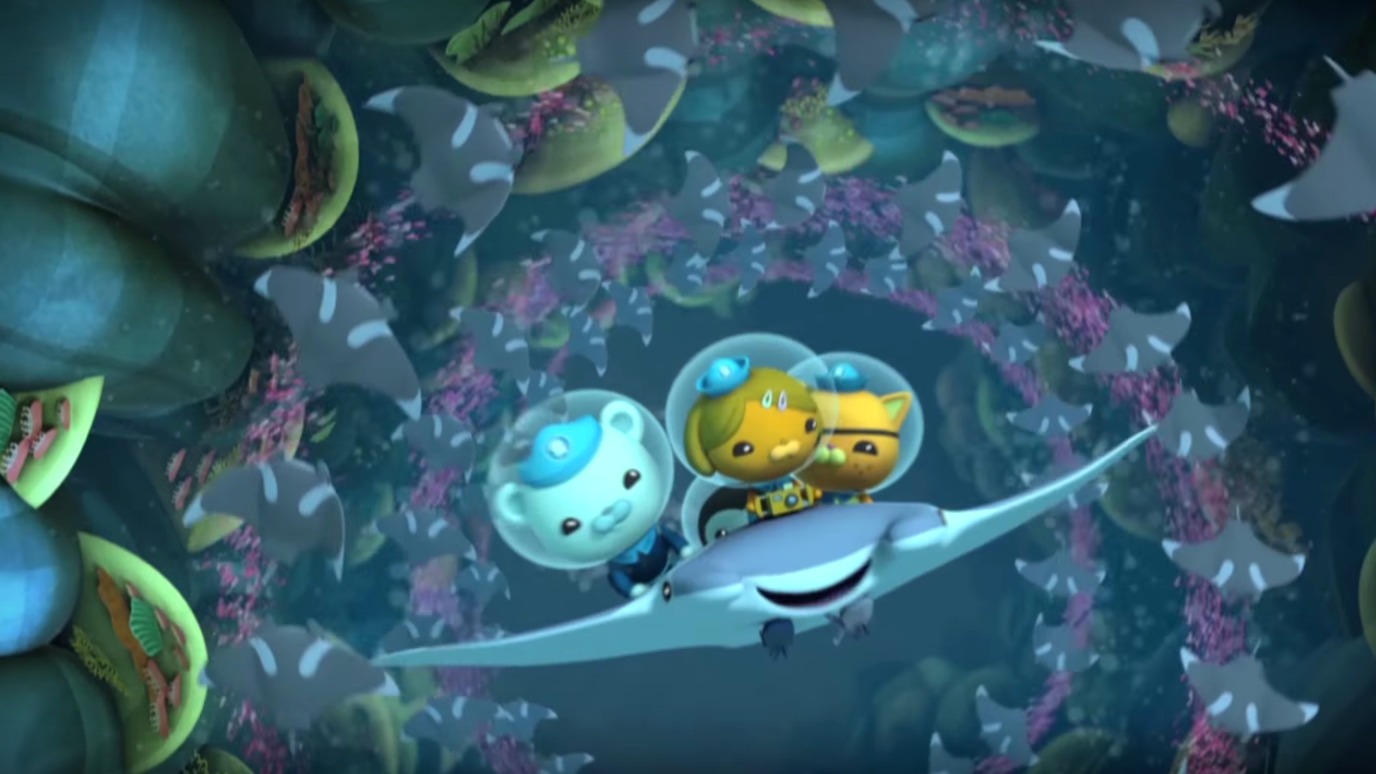This story was originally published by Slate and is reproduced here as part of the Climate Desk collaboration.
A cheetah can run 70 miles per hour. Venus and Earth are about the same size. Blobfish don’t have any bones.
These are facts I’ve learned from my 5-year-old in the past several weeks courtesy of the science- and nature-themed television shows he loves: Wild Kratts, Nature Cat, Blaze and the Monster Machines, and Octonauts. He is an erupting volcano of scientific trivia right now, so I was surprised the other day when I mentioned climate change and he said: “What’s that?”
After a few more questions, I discovered that he’s never heard any of his favorite science shows mention climate change or global warming. Which is strange, because according to overwhelming scientific consensus, climate change is one of the most important environmental issues of our time. It affects wildlife, natural resources, weather, and human health, all of which are regularly discussed on kids’ shows. My son can tell you everything you ever wanted to know about red pandas, except for the fact that their very existence is being threatened by the changing climate.
I know better than to trust a 5-year-old’s memory, of course, so I reached out to PBS Kids, Nickelodeon, and Disney Junior to see if there was any truth to his claim. I was told that with the exception of an episode of Disney Junior’s Doc McStuffins called “The Big Storm” — in which stuffed owl Professor Hootsburg says that “as the Earth gets warmer and warmer, big storms get bigger and bigger” — none of the three networks’ shows has ever discussed the causes, mechanisms, or impacts of climate change on our planet. (Kids’ movies don’t seem to fare much better. There is only one climate change–focused movie among Common Sense Media’s list of 47 “Movies That Inspire Kids to Change the World,” but alas, it’s rated PG-13.)
Maybe you’re wondering, as I did, if the reason is that kids’ science shows don’t ever tackle troubling environmental issues. Nope. They do. After asking Nickelodeon spokesperson Leslie Byxbee via email whether the network has ever covered climate change, she replied that its nature- and science-themed shows, which include Dora the Explorer and Blaze and the Monster Machines, have discussed deforestation, alternative energy, ocean garbage, endangered animals, oil spills, and littering. Noticing that climate change was missing from this list, I followed up by asking: “Am I correct to infer from your answer that climate change has not specifically been addressed in any of your shows, although other environmental issues have?” Her reply suggested that my questions touched a sensitive button. “Actually no, that’s not the inference I meant as your takeaway. All of the examples I gave are about the environment, which is related to climate change,” she wrote. She added that one episode of Dora the Explorer was about melting snow, which is evidence that “concepts of changes to the environment have been used in plots.” Hmm.
Why aren’t these networks introducing kids to a hugely important environmental issue? According to Maria Vera Whelan, spokesperson for PBS Kids, which runs Sid the Science Kid, Nature Cat, and Wild Kratts, it’s because the network feels that focusing on “foundational science concepts” is “the most age-appropriate way to serve our audience.” I don’t know about you, but I’d rather my kid learn a little about the melting polar ice caps than accumulate yet another piece of trivia about colossal squids.
And kids can handle climate change. As National Oceanic and Atmospheric Administration Climate Stewards educator and elementary school teacher Kottie Christie-Blick has explained, “Even young children are able to understand the basic idea. More importantly, they’re able to begin taking action to slow down global warming.” My guess is that the networks are afraid that promoting the (extremely solid) science on a politically controversial issue will lead them to lose viewers or advertisers. But if that’s true, and they’re choosing their bottom line over the education of America’s children, that’s a real shame. Kids need to learn about the issue that threatens their planet if they’re ever going to feel inspired to save it.



